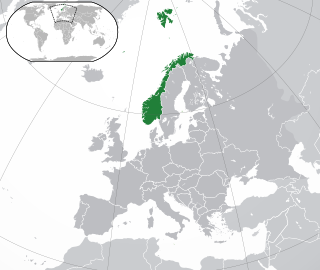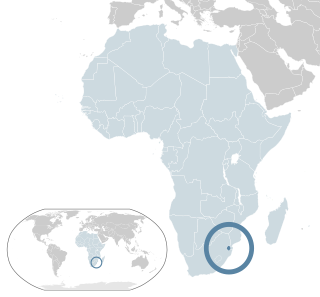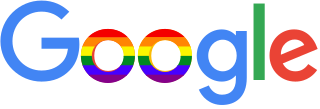Related Research Articles

LGBT culture is a culture shared by lesbian, gay, bisexual, transgender, and queer individuals. It is sometimes referred to as queer culture, while the term gay culture may be used to mean "LGBT culture" or to refer specifically to homosexual culture.

Lesbian, gay, bisexual and transgender (LGBT) people in Ukraine face legal challenges not experienced by non-LGBT people. Same-sex sexual activity between consenting adults is legal in Ukraine, but prevailing social attitudes are often intolerant of LGBT people, and households headed by same-sex couples are not eligible for any of the same legal protections and recognition available to opposite-sex couples.

Lesbian, gay, bisexual, and transgender (LGBT) persons in Turkey face legal challenges not experienced by non-LGBT residents, though Turkey's LGBT rights are considered to be relatively progressive compared to most other Muslim-majority countries.

Norway, like the other Scandinavian countries, is very progressive in regards to lesbian, gay, bisexual and transgender (LGBT) rights. In 1981, Norway became one of the first countries in the world to enact an anti-discrimination law explicitly including sexual orientation. Same-sex marriage, adoption, and assisted insemination treatments for lesbian couples have been legal since 2009. In 2016, Norway became the fourth country in Europe to pass a law allowing the change of legal gender for transgender people based on self-determination.
The Gay Police Association (GPA) was a British police staff association with members in all 52 UK police forces. The GPA was founded in 1990 by Constable James Bradley as LAGPA, and represented the needs and interests of gay and bisexual police officers and police staff in the United Kingdom. Other founding officers were Iain Ferguson, Ashley Wilce and Tony Murphy. The founding of the GPA for England and Wales also inspired satellite organisations in Scotland in 1990 and Northern Ireland in 2003.
This is a timeline of notable events in the history of the lesbian, gay, bisexual and transgender (LGBT) community in Canada. For a broad overview of LGBT history in Canada see LGBT history in Canada.

Lesbian, gay, bisexual, and transgender (LGBT) rights in Eswatini are limited. LGBT people face legal challenges not experienced by non-LGBT residents. According to Rock of Hope, a Swati LGBT advocacy group, "there is no legislation recognising LGBTIs or protecting the right to a non-heterosexual orientation and gender identity and as a result [LGBT people] cannot be open about their orientation or gender identity for fear of rejection and discrimination". Homosexuality is illegal in Eswatini, though this law is in practice unenforced. According to the 2021 Human Rights Practices Report from the US Department of State, "there has never been an arrest or prosecution for consensual same-sex conduct."

LGBT pride is the promotion of the self-affirmation, dignity, equality, and increased visibility of lesbian, gay, bisexual, and transgender (LGBT) people as a social group. Pride, as opposed to shame and social stigma, is the predominant outlook that bolsters most LGBT rights movements. Pride has lent its name to LGBT-themed organizations, institutes, foundations, book titles, periodicals, a cable TV station, and the Pride Library.

Lesbian, gay, bisexual and transgender (LGBT) people in Mongolia may face legal and social challenges not experienced by non-LGBT people, though there have been substantial improvements since the 1990s. Homosexuality was criminalised in Mongolia in 1961 through its Criminal Code. Following the Mongolian Revolution of 1990 after which it made a peaceful transition to a democracy, homosexuality was legalised and awareness about LGBT people has become more prevalent. Hate crimes on the basis of sexual orientation and gender identity result in additional legal penalties and hate speech based on these two categories has been outlawed in the country since 1 July 2017. Households headed by same-sex couples are, however, not eligible for the same legal protections available to opposite-sex couples.

Gayglers is a term for the gay, lesbian, bisexual and transgender employees of Google. The term was first used for all LGBT employees at the company in 2006, and was conceived as a portmanteau between "Google", the company they worked for, and "gay", a term referring to homosexual men, and by extension, LGBT people.

Lesbian, gay, bisexual, and transgender (LGBT) people in the United States have a long history, including vibrant subcultures and advocacy battles for social and religious acceptance and legal rights.
Although same-sex sexual activity was illegal in Canada up to 1969, gay and lesbian themes appear in Canadian literature throughout the 20th century. Canada is now regarded as one of the most advanced countries in legal recognition of lesbian, gay, bisexual, and transgender (LGBT) rights.
This article gives a broad overview of lesbian, gay, bisexual and transgender (LGBT) history in Canada. LGBT activity was considered a crime from the colonial period in Canada until 1969, when Bill C-150 was passed into law. However, there is still discrimination despite anti-discrimination law. For a more detailed listing of individual incidents in Canadian LGBT history, see also Timeline of LGBT history in Canada.

LGBT history in the United States spans the contributions and struggles of lesbian, gay, bisexual, and transgender (LGBT) people, as well as the LGBT social movements they have built.

There have been pride parades in South Africa celebrating LGBT pride since 1990. South African pride parades were historically used for political advocacy protesting against legal discrimination against LGBT people, and for the celebration of equality before the law after the apartheid era. They are increasingly used for political advocacy against LGBT hate crimes, such as the so-called corrective rape of lesbians in townships, and to remember victims thereof.

New York City is home to one of the largest LGBTQ populations in the world and the most prominent. Brian Silverman, the author of Frommer's New York City from $90 a Day, wrote the city has "one of the world's largest, loudest, and most powerful LGBT communities", and "Gay and lesbian culture is as much a part of New York's basic identity as yellow cabs, high-rise buildings, and Broadway theatre". LGBT travel guide Queer in the World states, "The fabulosity of Gay New York is unrivaled on Earth, and queer culture seeps into every corner of its five boroughs". LGBT advocate and entertainer Madonna stated metaphorically, “Anyways, not only is New York City the best place in the world because of the queer people here. Let me tell you something, if you can make it here, then you must be queer.”
This is a timeline of notable events in the history of non-heterosexual conforming people of Asian and Pacific Islander ancestry, who may identify as LGBTIQGNC, men who have sex with men, or related culturally-specific identities. This timeline includes events both in Asia and the Pacific Islands and in the global Asian and Pacific Islander diaspora, as the histories are very deeply linked.

LGBT culture in Baltimore, Maryland is an important part of the culture of Baltimore, as well as being a focal point for the wider LGBT community in the Baltimore metropolitan area. Mount Vernon, known as Baltimore's gay village, is the central hub of the city's lesbian, gay, bisexual, and transgender communities.

The ongoing COVID-19 pandemic has highlighted inequities experienced by marginalized populations, and has had a significant impact on the LGBT community. Gay pride events were cancelled or postponed worldwide. More than 220 gay pride celebrations around the world were canceled or postponed in 2020, and in response a Global Pride event was hosted online. LGBTQ+ people also tend to be more likely to have pre-existing health conditions, such as asthma, HIV/AIDS, cancer, or obesity, that would worsen their chances of survival if they became infected with COVID-19. They are also more likely to smoke.
References
- ↑ Couto, Joe. "Covered in Blue: Police Culture and LGBT Police Officers" (PDF). RoyalRoads.ca. dspace.royalroads.ca. Archived from the original (PDF) on 16 September 2016. Retrieved 8 September 2016.
- ↑ Jones, Matthew; Williams, Matthew L. (2015-03-04). "Twenty years on: lesbian, gay and bisexual police officers' experiences of workplace discrimination in England and Wales" (PDF). Policing and Society. 25 (2): 188–211. doi:10.1080/10439463.2013.817998. ISSN 1043-9463. S2CID 295115.
- 1 2 Cohen, Susan (April 25, 1979). "Homosexual Police Officers". The Evening Independent. Retrieved 8 September 2016.
- 1 2 Weber, Bruce (May 17, 2015). "Sam Ciccone, a Champion of Gay Police Officers, Dies at 71". New York Times. Retrieved 8 September 2016.
- ↑ Lewis, Alfred; Valentine, Paul. "Police Transsexual Seeks Active Duty". The Washington Post. Retrieved 31 Mar 2021.
- ↑ Anna Qundlen, "A Tough Month in the New Life of a Policeman", The New York Times, Dec. 5, 1981.
- ↑ Scotto, Michael. "Greenwich Village Street Named After Man Considered NYPD's First Publicly Gay Officer". \NY1.com. Time Warner Cable Enterprises LLC. Retrieved 8 September 2016.
- ↑ Dickey, Jim (March 16, 1987). "Gay police officers increasingly in open". Spokane Chronicle. Knight Ridder. Retrieved 8 September 2016.
- ↑ Duffy, Andrew; Smith, Marie-Danielle (August 15, 2014). "Death by hate: The life, power and symbolism of Alain Brosseau". Ottawa Citizen. Retrieved 2019-07-31.
- ↑ "The Lesbian and Gay Police Association-1992 to 2005". goalchicago.info. Retrieved 8 September 2016.
- ↑ CBC News (May 15, 2019). "Hate crime unit confusion 'unfortunate,' interim chief says". CBC News.
- ↑ "Uniformed officers march in Gay Pride". BBC News Online. 2003-07-26. Retrieved 2022-01-14.
- ↑ "About Us". gay-police.eu. Retrieved 8 September 2016.
- ↑ Collyns, Dan (14 May 2009). "Peru to ban gay police officers". BBC News. Retrieved 8 September 2016.
- ↑ Wilkinson, Michael. ""I'm gay" says Gloucestershire Chief Constable Suzette Davenport | Gloucestershire Live". GloucestershireLive. Local World Limited. Retrieved 8 September 2016.
- ↑ "Boston's Finest: Gay Couple Is First to Graduate Police Academy Together". Out.com. Here Media Inc. 2015-06-17. Retrieved 8 September 2016.
- ↑ "This gay Toronto cop sent an open letter to Pride Toronto about the Black Lives Matter protest". CBC. July 4, 2016. Retrieved 8 September 2016.
- ↑ "Meet The First Gay Police Officer In Chile To Celebrate A Civil Union". The Huffington Post. Reuters. 21 April 2016. Retrieved 8 September 2016.
- ↑ Politie Nederland, "Proud To Be Your Friend", 2016
- ↑ "Profiles in courage: A look at the lives of the Dallas ambush victims". DallasNews.com. Reuters. Retrieved 8 September 2016.
- ↑ "As #LGBTHM21 comes to an end, our temporary Chief Constable @BTPDeputy reflects on his journey within the force. Read his article here..." Twitter - @btp. Retrieved 2021-02-26.
- ↑ "First openly gay man to lead a UK police force doesn't want it to be an 'historic moment'". PinkNews. 2021-02-25. Retrieved 2021-02-26.